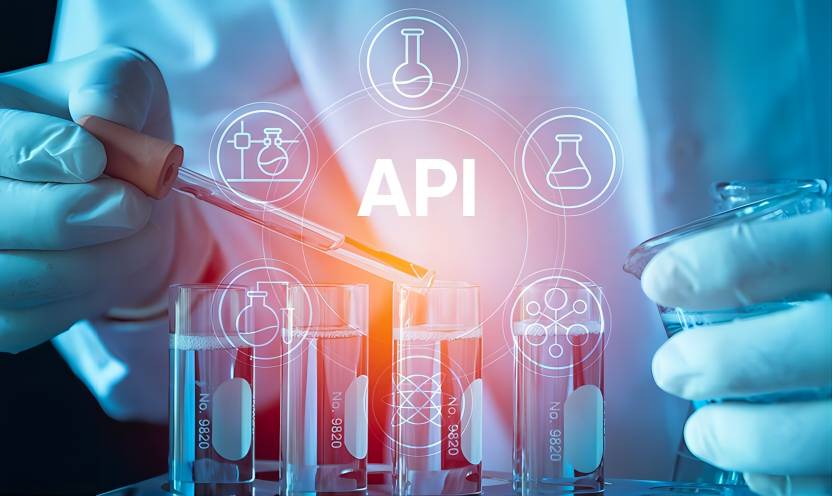
In the pharmaceutical industry, active pharmaceutical ingredients (APIs) are biologically active substances with therapeutic effects in drug preparations, which directly determine the efficacy and safety of drugs. As the core component of drugs, APIs are usually prepared by chemical synthesis, biotechnology production or extraction from natural sources, and combined with excipients to form final preparations (such as tablets, injections, etc.).
With the continuous expansion of the global pharmaceutical market, the demand for APIs is also growing year by year, especially in the field of foreign trade, and the import and export business of APIs has gradually become an important part of the pharmaceutical industry.
Common Types of APIs
The following are several types of APIs that are widely used in the market, each with a unique mechanism of action and application area.
Anticancer APIs
Anticancer APIs are used to treat cancer. In recent years, with the increase in the incidence of cancer, the market demand for such APIs has increased significantly. Common anticancer APIs include:
- Cisplatin: A chemotherapy drug for testicular, ovarian, and bladder cancers.
- Paclitaxel: Used for breast, ovarian, and lung cancers.
- Enzalutamide: An androgen receptor antagonist for prostate cancer.
Anti-Inflammatory and Analgesic APIs
These APIs possess analgesic and anti-inflammatory effects and are widely used in chronic disease management. Typical anti-inflammatory and analgesic APIs include:
- Aspirin: Suitable for mild to moderate pain (e.g., headaches, toothaches, neuralgia, muscle pain) and also effective for rheumatic fever and active rheumatoid arthritis.
- Paracetamol/Acetaminophen: A para-aminophenol derivative antipyretic and analgesic, commonly used to relieve mild to moderate pain (e.g., headaches, joint pain, toothaches) and fever associated with colds.
- Ibuprofen: Used for moderate to severe pain relief, with antipyretic effects, making it a common over-the-counter antipyretic and analgesic.
Antibiotic APIs
Antibiotic APIs are among the most common active pharmaceutical ingredients in the global pharmaceutical market. They primarily inhibit or kill bacteria by interfering with bacterial cell wall synthesis, protein synthesis, or DNA replication, thereby treating infectious diseases. Common antibiotic APIs include:
- Penicillin: A first-line treatment for various bacterial infections, particularly effective against pneumococcal infections.
- Cephalosporins: Widely used clinically for upper respiratory tract infections, urinary tract infections, and skin infections.
- Erythromycin: Primarily used to treat respiratory infections such as bronchitis and pneumonia.
Cardiovascular APIs
Cardiovascular diseases are one of the leading causes of mortality worldwide. Cardiovascular active pharmaceutical ingredients (APIs) are widely used in the treatment of conditions such as hypertension, angina pectoris, and arteriosclerosis. Commonly used cardiovascular APIs include:
- Atorvastatin: Lowers cholesterol and prevents atherosclerosis.
- Losartan: An angiotensin II receptor blocker (ARB) used to treat hypertension and heart failure.
- Valsartan: Another ARB beneficial for diabetic nephropathy.
Antiviral API
With the impact of the epidemic, antiviral API has attracted much attention. Such products are mainly used to treat viral infections such as influenza and HIV. Common APIs include:
- Acyclovir: used to treat herpes simplex and herpes zoster;
- Ganciclovir: for cytomegalovirus infection in immunocompromised patients;
- Oseltamivir: used to treat influenza as a neuraminidase inhibitor.
Overview of the Global API Supply Chain
The demand for APIs from global pharmaceutical companies continues to rise. China and India have emerged as the world’s largest API producers, supplying over 60% of the global market demand.
In international trade, API products must comply with stringent pharmaceutical quality standards. Regulatory policies in various countries require manufacturers to obtain certifications such as GMP and ISO.
With increasingly fierce competition in the supply chain, pricing, delivery lead times, and quality control have become critical factors for companies to gain a competitive edge.
How to choose a high-quality API supplier?
Selecting high-quality suppliers is crucial to ensuring drug quality. When evaluating suppliers, enterprises should focus on the following key factors:
First of all, you should consider whether the API supplier has ISO or GMP certification, whether it can provide detailed quality inspection reports, and whether it ensures that the API it provides meets the regulatory requirements of the target market.
Secondly, you need to consider price and delivery time. When negotiating prices with suppliers, you need to consider quality and delivery time to ensure that the goods can be delivered on time.
Finally, it is recommended to choose suppliers with good market reputation and rich experience, which can effectively reduce procurement risks.
Conclusion
With the development of the global pharmaceutical industry, the demand for API will continue to grow. For pharmaceutical companies, choosing high-quality API suppliers and ensuring compliance with international standards is the key to successfully entering the global market.
If you have any API needs or inquiries, please contact us. We collaborate with numerous certified manufacturers to provide you with high-quality, cost-effective API products that meet global regulatory requirements.
